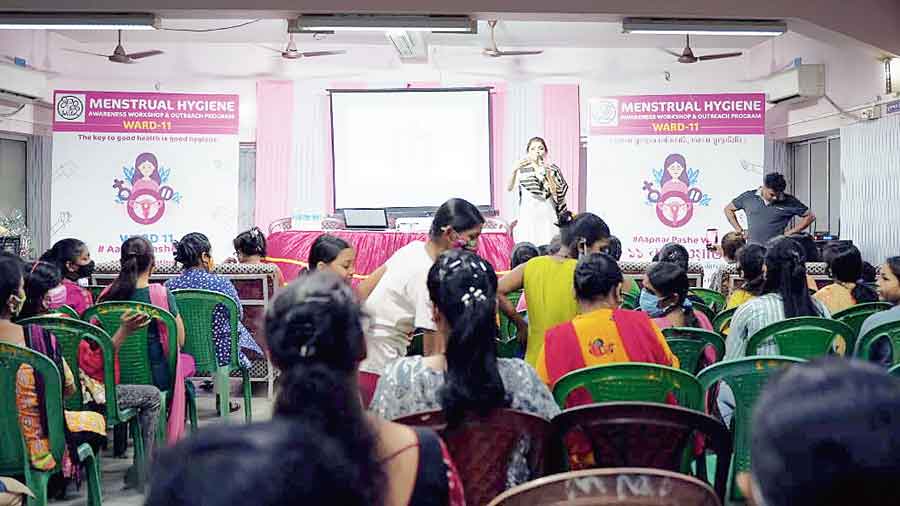A group of girls and women from urban slums, many of whom still depend on unhygienic alternatives during menstruation, were educated about menstrual hygiene and healthy habits.
Over 200 women from north Kolkata neighbourhoods attended the awareness workshop, which also aimed at breaking the stigma associated with menstruation and addressing their gynaecological concerns that many often neglect or are forced to do so.
The menstrual hygiene awareness workshop started with free distribution of sanitary napkins door to door in shanties, followed by educating girls and women about healthy practices.
“We want them to develop the habit of using hygienic sanitary napkins. Once they develop that, they will not go back to unhygienic alternatives,” said Priyadarshini Ghosh, a business woman and social worker who has started the work in Ward 11 in Kolkata.
The awareness and outreach programme is an initiative of Trinamul Mahila Congress. It started with distribution of sanitary napkins to 400 women in the slums in Hatibagan, Aurobindo Sarani, Nalin Sarkar Street, Madhab Das Lane.
The stigma is real for many women, Ghosh said.
“We deliberately took the black packet away and gave them the sanitary pads in white packets. We intend to take away that cover because there should be nothing to hide. But the process has to be gradual,” said Ghosh.
As Ghosh herself went door to door, she noticed that a section of young girls after receiving the sanitary napkins joined her in the outreach.
“It was liberating for them to be able to come out in the open and talk about menstruation in the presence of male bystanders. But there is a section of middle-aged women who are still shy about talking about menstruation or prolonging the conversation in any way. It is those homes that we have to go to again and again,” said Ghosh.
In the workshop the participants were shown documentaries on how a father gets sanitary napkins for his daughter or a husband for his wife.
The breaking of the stigma will not happen in one day and Ghosh said she would have to give the women both time and space.
She invited only girls and women to the workshop because many of them would not have turned up there had there been men around.
“In order to bring their guard down, I have to give them a comfortable space. If we are to involve male members right at the onset, it will attract more rigidity. My first priority is health. The breakdown of the stigma is second,” said Ghosh.
The third phase of the project will involve installation of at least one manufacturing machine in the constituency so women and girls could get sanitary pads at a cost as low as Re 1.
